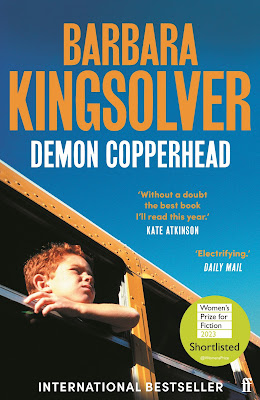Dickens, Charles "Martin Chuzzlewit. The Life and Adventures of Martin Chuzzlewit" - 1843-44
I'm a huge fan of Charles Dickens and am glad I read this novel. But I wouldn't recommend it if you haven't read anything else by him. For me, this was one of his worst novels.
Too many characters, even though he was able to include many interesting names. This also meant that some things got lost, such as the main love story, which is what everything supposedly revolves around. But it's barely portrayed. We hardly see the couple together. Otherwise, too much confusion, chaos, one catastrophe after another.
I read somewhere that this is Dickens' most underrated book. I wouldn't say that; I think it landed exactly where it belongs, somewhere at the very bottom of all his fantastic books.
I recommend "David Copperfield" for starters.
From the back cover:
"Old Martin Chuzzlewit believes that greed is so endemic in his family that he disinherits his grandson and hinders his courtship of Mary Graham. As the intricacies of he plot develop the story passes from sunny comedy to the grimmest depths of criminal psychology. Domestic tyranny is tellingly depicted through the household of Mr Pecksniff and public villainy - leading to blackmail and murder - revealed in the activities of the Anglo-Bengalee Disinterested Loan and Life Assurance Company...
A brilliant satire on selfishness and hypocrisy revolving around a stubborn young protagonist. Martin Chuzzlewit is also one of Dickens's comic masterpieces. Peopled with a cast of characters - including Mrs. Gamp, Poll Sweedlepipe, Montague Tigg and Chevy Slyme - unequalled elsewhere in his novels."





















